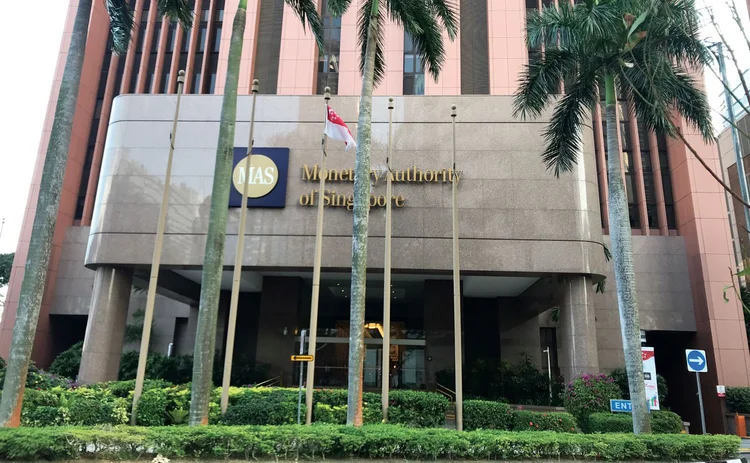
Asia-Pacific banks revise conduct scorecards in culture push
DBS, Maybank and others tweak performance metrics to reward good behaviour over hard sales

With regulators from Sydney to Singapore turning the screws on the conduct risk framework, banks in the region are making structural changes to the way they measure employee performance.
Take the case of Maybank, Malaysia’s largest lender by assets, which has overhauled the individual compensation model across its network. When evaluating a staff member’s performance, the bank now takes into account metrics such as client satisfaction and ethical behaviour, alongside financial targets.
The bank uses an assessment tool known as a balanced scorecard, which rates employees against key performance indicators (KPIs). Scores can be used to set remuneration.
“If you are found to be negligent, resulting in non-compliance of a particular regulatory requirement – even though you may have met all your other KPIs – the single not-met can knock you off,” says Jon Yeo, chief compliance officer at Maybank’s Singapore unit. Sanctions include pay reduction, delayed promotion or even sacking.
“That’s the severity of our balanced scorecard. It tells people the importance we attach to every KPI that is set in our institution,” Yeo adds.
The changes come as Singapore’s regulator readies its long-awaited regime governing personal conduct – a move that brings it in line with other jurisdictions such as Hong Kong and Australia. Scorecards are just one tool banks are deploying: in Australia – following a scathing review into conduct in the financial sector – ANZ has altered the way it incentivises branch staff by abolishing sales targets.
Singapore lender DBS subjects all its employees to a balanced scorecard that it says is now more forward looking, while Commonwealth Bank of Australia has tweaked the weightings of the components that make up its scorecard.
Maybank has removed all weightings from the scorecard and has rolled out a binary system of met or not-met. It has also standardised the wording of the scorecard for indicators such as financial targets, regulatory requirement and customer feedback. Previously, individual business or support units were responsible for setting their own metrics. Yeo says the changes have combined to reduce the number of regulatory breaches.
“Consistency is always the challenge that banks face when applying a balanced scorecard across organisations,” Yeo says. “We want to achieve a more consistent way of measuring it even in the cases where we notice there are wrongdoings, so the punishment is consistent as well.”
The revisions go some way to meeting increased scrutiny from regulators across the region. Australia imposed an accountability code known as BEAR, or the Banking Executive Accountability Regime, last year. The framework clarifies the roles and responsibilities of bank leaders and comes after an enquiry into misconduct in the financial services industry. The probe, which prompted high-level resignations within banks, found that lenders encouraged mis-selling of products with skewed incentive schemes, among other malpractices.
In response, Commonwealth Bank of Australia capped the weighting of financial metrics such as sales targets at 30% of an employee’s balanced scorecard. The limit applies to retail customer-facing staff and their managers. The bank also started to reward branch tellers based on customer feedback and manager observations. Similarly, ANZ removed sales targets on its branch tellers to prevent a repeat of missteps.

Hong Kong brought in a similar regime, called Manager-in-Charge, in 2017. The MIC regime puts the onus of maintaining conduct standards on to senior managers. Akin to the UK’s Senior Managers and Certification Regime, appointed MICs are in charge of certain core functions, including operational control and review, risk management, anti-money laundering, and compliance.
The Monetary Authority of Singapore is set to release conduct risk guidelines to ensure senior management and employees fulfil their responsibilities and are incentivised appropriately. In June, it published a response to the Individual Accountability and Conduct consultation paper. The previous month, MAS formed a steering group with the Association of Banks in Singapore to promote better culture and conduct among banks.
“Financial institutions should design their incentive frameworks and structures to adequately consider behavioural and conduct factors, in addition to financial KPIs,” MAS wrote. “The compensation framework should provide a means, among other measures which the financial institution may have in place, to hold senior managers accountable for their conduct.”
Lee Alam, head of Allen & Overy’s Asia-Pacific consulting business and previously head of global regulatory affairs at Commonwealth Bank of Australia until April last year, says most individual accountability regimes will come with a requirement to change incentive structures for executives.
“The industry has taken a lot of steps to rebalance scorecards for executives and make sure they take account of more than just financial metrics; there will be much more on the non-financial side,” he says.
The concept of the balanced scorecard was proposed by Harvard Business School professor Robert Kaplan and consultant David Norton in 1992, and financial institutions began to adopt the concept more readily after the financial crisis of 2008. Most banks, including Maybank and DBS, review their scorecard on a periodic basis.
The disciplinary committee at Maybank considers misconduct incidents and regularly reviews whether the application of its balanced scorecard and other practices have any gaps.
DBS’s balanced scorecard is established and updated by the group management committee annually and reviewed by the board, which cascades specific goals down to all staff, according to Shee Tse Koon, Singapore country head at DBS. Feedback from employees is shown in a dedicated section in the annual staff survey about culture and conduct.
DBS says it has made its balanced scorecard more forward-looking to prepare for the unexpected in the years to come.
“The balanced scorecard has always been talking about a balance between financial goals with people, customers and risks. But we also have a balanced scorecard that looks beyond the current deliverables to getting ourselves future ready,” says Shee, who also chairs the Culture and Conduct Steering Group that has representatives from 13 banks, the Monetary Authority of Singapore and the Association of Banks in Singapore.
Beyond the scorecard. DBS also has a so-called fair dealing committee co-chaired by its group chief executive and Shee to discuss conduct and culture issues on a regular basis.
The purpose of these industry efforts is for banks to install consistent expectations of conduct that all employees are aware of.
“I can tell you all the rules and regulation. You can always derail knowingly or unknowingly,” says a Hong Kong-based senior operational risk manager at a global financial institution. “What an organisation must ensure is that there is a secured control process in place that is transparent enough to everyone – similar to what the regulators want.”
Correction, July 11, 2019: An earlier version of this article stated that Shee was head of DBS’s culture and conduct steering group. He is, in fact, head of the steering group formed by MAS and the Association of Banks in Singapore.
Editing by Alex Krohn
Only users who have a paid subscription or are part of a corporate subscription are able to print or copy content.
To access these options, along with all other subscription benefits, please contact info@risk.net or view our subscription options here: http://subscriptions.risk.net/subscribe
You are currently unable to print this content. Please contact info@risk.net to find out more.
You are currently unable to copy this content. Please contact info@risk.net to find out more.
Copyright Infopro Digital Limited. All rights reserved.
You may share this content using our article tools. Printing this content is for the sole use of the Authorised User (named subscriber), as outlined in our terms and conditions - https://www.infopro-insight.com/terms-conditions/insight-subscriptions/
If you would like to purchase additional rights please email info@risk.net
Copyright Infopro Digital Limited. All rights reserved.
You may share this content using our article tools. Copying this content is for the sole use of the Authorised User (named subscriber), as outlined in our terms and conditions - https://www.infopro-insight.com/terms-conditions/insight-subscriptions/
If you would like to purchase additional rights please email info@risk.net
More on Risk management
Revealed: the three EU banks applying for IMA approval
BNP Paribas, Deutsche Bank and Intesa Sanpaolo ask ECB to use internal models for FRTB
FICC takes flak over Treasury clearing proposal
Latest plans would still allow members to bundle clearing and execution – and would fail to boost clearing capacity, critics say
Buy side would welcome more guidance on managing margin calls
FSB report calls for regulators to review existing standards for non-bank liquidity management
Japanese megabanks shun internal models as FRTB bites
Isda AGM: All in-scope banks opt for standardised approach to market risk; Nomura eyes IMA in 2025
Benchmark switch leaves hedging headache for Philippine banks
If interest rates are cut before new benchmark docs are ready, banks face possible NII squeeze
Op risk data: Tech glitch gives customers unlimited funds
Also: Payback for slow Paycheck Protection payouts; SEC hits out at AI washing. Data by ORX News
The American way: a stress-test substitute for Basel’s IRRBB?
Bankers divided over new CCAR scenario designed to bridge supervisory gap exposed by SVB failure
Industry warns CFTC against rushing to regulate AI for trading
Vote on workplan pulled amid calls to avoid duplicating rules from other regulatory agencies







